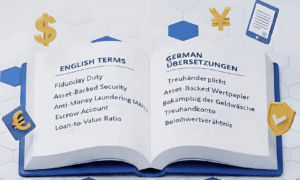Because most translation work involves some aspects of technical translation, technical translations are a significant part of the language services industry. Companies often need translations for everything from reports and software to patents and user documentation, especially when they are thinking about introducing new products and services or entering new markets. Technical translations are a lot more than rewriting documentation in a different language, as the translator has to have a deep understanding of the technical requirements of the industries they work in. Because of this, technical translations come with some challenges whose potential solutions we will explore below.
Theoretical Understanding
All translators working in technical translation must have a technical understanding of the documents they are translating and their related industries. For instance, do you know what transforming asset management is? If not, you need help.
An understanding of key concepts as well as specific technical and scientific knowledge about the industry are also key. For instance, you want to be sure that you hire a specialized translation company since they have members of staff with in-depth knowledge and understanding of these industries. They understand that inaccuracy can lead to costly mistakes, and so they want people who have worked in these industries dealing with these types of translations.
Knowledge of Terminology Translations Between Languages
One of the biggest challenges technical translators have to overcome is some languages do not have direct translations for some words. This often happens when translating documents between languages that have a strong and mature vocabulary in a certain industry and one that does not. For example, there are a lot of medical terminologies that do not have an equivalent in Arabic.
In such instances, the translator must use their skills and knowledge of the industry they are working in to fill the gaps in vocabulary and information. While ensuring the translation is accurate, they must also ensure that it reflects the intended messaging in the original documentation.
Tight Deadlines
Most technical documents are subject to tight deadlines and time constraints. These limitations introduce another level of complexity to technical translations. These constraints are often due to legal requirements or document expiration, such as in cases of patents and company rights.
Companies should try to work with translators who have extensive experience in their industries and who have a proven track record of working fast while still being incredibly accurate. This is because speed often introduces errors and this can lead to bad outcomes, especially in cases where language accuracy is critical.
Localizations
Even when keeping an eye on the technical aspects of technical translations, translators and companies alike should be careful about the effects of their translations and the documentation of local norms and customs. If translated documents are meant for mainstream audiences, translators and companies alike must ensure they are sensitive to the locals and remove all language, images, and content that may be inappropriate.
Proper preparation before embarking on any technical translation project can help overcome many of the challenges technical translators face. Asking for additional information and supporting documentation, lots of research, and understanding local customs and norms can also go a long way in making the technical translation fit better.



































